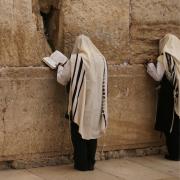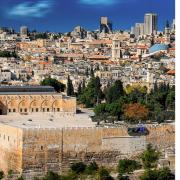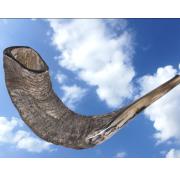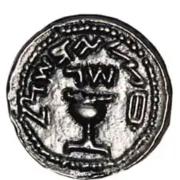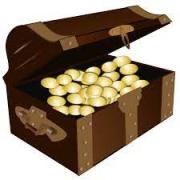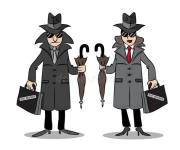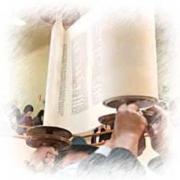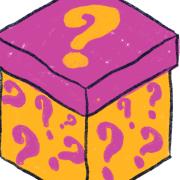The Fifth Son - 1, The Arrogance
The story is told in the Parashat Behalotcha 9:6-14 of people who approached our teacher Moshe and posed a very logical request. They have been carrying the bodies of people who passed away, and as the law states, those who have been exposed to the dead body are ritually unclean and may not partake in the offering of Korban Pesach that is brought on the Holiday of Pesach. But they felt - why should they miss out on this commandment, and they also want to have a share in it! So Moshe, after speaking with Hashem, was told that the nation of Israel gets a new commandment of a Second Pesach or Pesach Sheni, which will allow them to fulfill some of the rituals and get Merit for the performed mitzvah as if they have fulfilled it as well - they were given a Second Chance.
But here it gets more interesting. There's a discussion in Masechet Sanhedrin that goes like this: what if the person skipped the Holiday of Pesach on purpose, but on the Pesach Sheni wants to partake in the mitzvah, how will that work..?
So, this is where I would like to drop the anchor.
In Haggadah of Pesach, we are told about four sons that are sitting around the Passover table: Chacham - the wise son, Rasha - the evil one, Tam - the simpleton, and Eno Yodea Lishol - one that doesn’t know how to ask a question. But the Sages tell us of yet another son who is missing from this list; it is the one that chose not to come to the Seder.
The one that has intentionally skipped the observance of the Holiday of Pesach. He didn’t feel like it; he had other plans and other people to see, so he didn't come for the seder. But as time passed, this person regretted it and came to the rabbi to ask what he could do to make up for that missed Seder night. And this is where the Holiday of Pesach Sheni comes in, as a Second Chance.
But what is the character trait that played the role in his decision not to come to the Seder, but enjoy himself somewhere else when he was supposed to be together with the others? It is a trait of Gaavah or Arrogance, Bloated Ego, or a mix of the few.
This reminds me of another incident in the Torah, where I believe the clarity may set in.
Parashat Acharei Mot 16:6-11 tells us of a service performed on Yom Kippur. They would take two male goats, and by lot, one would be sent to the wilderness to Azazel to be thrown from the cliff, and the other to be offered as a korban, as an atonement.
But why a goat? What is so special about it? This animal has a bloated ego, is arrogant, head-butting, jumping the fence or on the trees, has no problem climbing mountains and cliffs, is loud, and is somewhat a rebellious child - always pushing boundaries.
So the person who did not attend the Seder night feels bad about it and wants to make up for the missed Seder. So, the Torah tells us to throw the goat from the cliff. But the intention of the Torah is for us to throw our traits like bloated ego and arrogance that led us to rebel against Hashem, Rabbinical, and Torah laws, and to throw those traits from the cliff. When this person is about to make teshuvah and wants to return and rejoin the Seder, the Torah tells us that we should take a goat and bring it as a sacrifice. Because those traits that have made the person not attend the Seder are still inside of him, so this sacrifice is as if we are bringing our ego and arrogance as a sacrifice to Hashem, and that's how we start anew.
Sometimes, we let our traits of arrogance, ego, and chutzpah shine and run wild. Be it in the service of Hashem where we allow ourselves to bend some of the laws and not follow them as Hashem commanded, or ignore them altogether and be on the loose. Or maybe, it is the laws between fellow men, be it monetary, slander, or many other ways one can hurt the other individual. But either way, we are sure that we are loved and accepted by Hashem, but maybe...
As it says in the Book of Prophet Ezekiel in 41:22, ...And He said to me, This is the table that is before Hashem... maybe we have disqualified ourselves from His Table, by acting as the Fifth Son - and now we are no longer there, because of the things we have done on purpose. Oh, maybe Hashem is NO Longer Present at Our Table, and we have to go through the painstaking process of wiping clean those traits of ego and arrogance, deal with the consequences of our traits, and eventually take our rightful place at the table of Hashem or have Him be present at Our Table.
The Hebrew word for "table" is "shulchan" (שלחן). The same Hebrew letters can be rearranged to spell "lenachash" (לנחש) - "to a snake." It is either we change, and our Shulchan becomes "a table [before Hashem]", or we make it "lenachash" - to a snake - that kills and makes our food, us and our lives - "zivchei meitim" — lifeless, dead, and full of impurities.
In a few places in the Torah, it says - Ish Ish... which may be explained the following way. The first Ish is translated as Man, which includes all men, but the second one talks about the person who says: It does not mean me. And it has no connection to me, in no way it concerns me as I am above all of that - comes Hashem and adds a second Ish, to include exactly the one that tries to exclude himself: Ish - Yes, You Too May Be if not already The Fifth Son.
Click here to go to Part 2 of this article, where you will learn more secrets about The Fifth Son.
Shmuel Katanov






